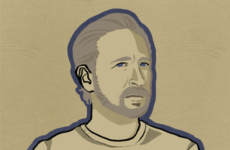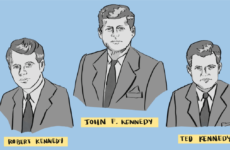On September 21, the United Nations (U.N.) turned 75. Praised for its global peacekeeping initiatives and attention to human rights, the institution has received considerable credit for its work. However, criticism has heightened recently as people have begun more closely evaluating some of the U.N.’s practices.
While many of the U.N.’s humanitarian efforts have benefitted the international community, the institution has been plagued by power politics and political biases.
Currently, the United Nations Security Council (UNSC) is composed of five countries — China, France, Russia, the U.K., and the U.S. — who hold permanent seats on the council. Other members are elected to two-year terms. Many countries, such as India, Japan, and Germany, have sought membership in the past, only to be blocked by rival members.
The UNSC has the power to impose sanctions and authorize military intervention. Members of the permanent five (P5) can veto any decision — the U.S, for instance, has utilized its veto power 16 times since 1990, often concerning decisions about Israel and Palestine. Given this reality, can the world rely on the U.N. to make crucial decisions and pass important measures when rivalries between UNSC member nations can prevent proper representation?

The United Nations celebrates its 75th anniversary this month. Graphic by Sesame Gaetsaloe/The Choate News
Bitter relations between P5 countries have hindered progress of U.N. efforts on numerous pressing issues. Notably, the ongoing conflict in Syria has divided the P5: Russia is a staunch supporter of Syrian President Bashar al-Assad’s administration, while the U.S., U.K., and France have sided with the opposition groups. Unable to reach a consensus, the UNSC took no action in Syria, despite the country’s ongoing war crimes and extreme human rights violations.
Additionally, there have been instances where countries blatantly ignored U.N. prohibitions. For example, North Korea has repeatedly conducted nuclear tests, despite warnings and sanctions passed by the U.N. Such outright disregard for the U.N.’s directives undermines their authority and effectiveness.
In order for the U.N. to improve, several issues must be addressed. First, they must implement measures to ensure impartiality. The P5’s unjustified veto power is a prime example of an imbalance of power within the security council, guaranteeing that the interests of China, France, Russia, the U.S., and the U.K. will always be prioritized. Additionally, internal disagreements and politics between P5 countries should not hinder the process of making crucial security decisions regarding third-party countries.
Second, the U.N. must find better ways to hold countries accountable for neglecting U.N. initiatives without infringing on a country’s sovereignty.
Only after the U.N. improves in these two ways can it effectively maintain international peace and protect the human rights of citizens in all countries.




